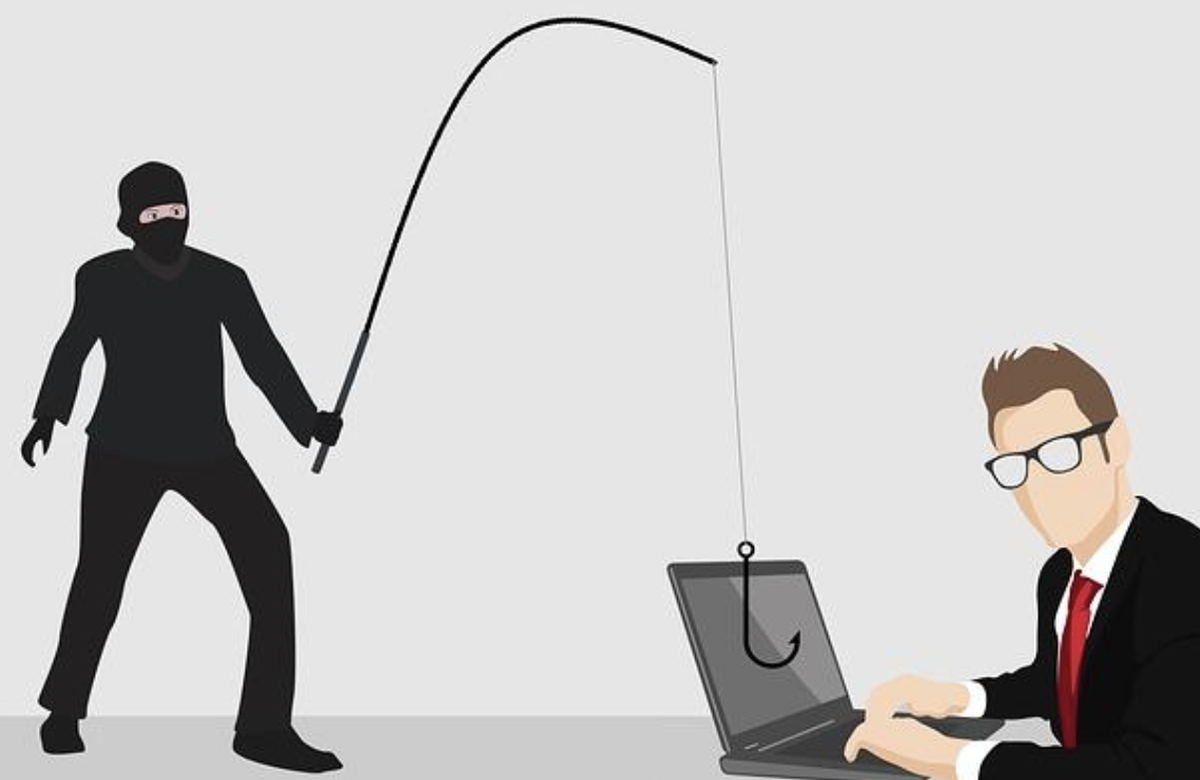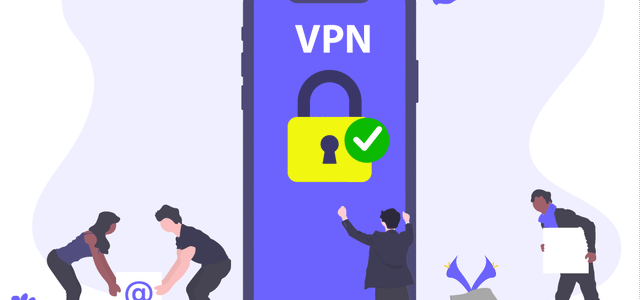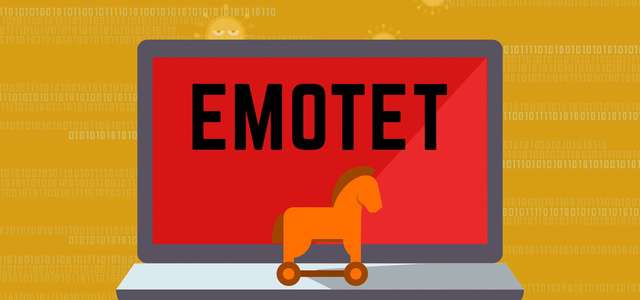
26 April 2022
What’s the Best VPN for the Money?How GetFlix.com Compares to ExpressVPN, NordVPN, and SurfSharkWhen you browse the Internet without a secure connection, your private data is at risk.

29 March 2022
Data breach statistics aren't just bad news for consumers. Many businesses are facing a similar situation. The number of data breaches that occur in businesses is increasing, as is the amount of sensitive data that is exposed online. These crimes are costly, and your privacy is at risk. Therefore, a VPN will make you more secure and protected in the digital world. So, get a VPN!
A single hacker can steal a company's information and sell it on the black market. The average person is not aware that his or her credit card information can be sold for as much as $45 on the dark web. This is a problem for all businesses. Luckily, there are ways to prevent such an attack and ensure your privacy. However, it is important to remember that there are no guarantees of security.
Ransomware attacks are a major problem for both individuals and businesses. These attacks are increasingly effective and focused, and the data they steal is sold to cybercriminals. In addition to personal data, businesses are also prone to losing corporate information. For this reason, a VPN is an essential piece of internet security. The service protects sensitive information and keeps your privacy safe.
The prevalence of cybercrime is growing globally. Despite the fact that people have a greater awareness of their potential to become victims of this crime, they still don't realize the severity of the threats. Using a VPN is the best way to protect yourself online.
In the 21st century, almost all of our lives are reliant on hackable technology. Our cars, computers, and even our smart home devices are vulnerable to cybercrime. In fact, one in three people is a victim of cybercrime every year. To better understand the extent of this threat, it's useful to understand the statistics that relate to this crime.
The economic impact of cyber crime is staggering, and the numbers are only increasing. In February 2018, McAfee reported that the economic impact of cyber crime had reached US $3 trillion. As the scale of this malicious activity increases, so does the number of people it targets. The introduction of Bitcoin has made payments to these criminals virtually untraceable. The economic consequences of cyber crime continue to grow, with a few exceptions.
According to McAfee, every 39 seconds, a computer is attacked by a cybercriminal. These attacks can remain in the network for 146 days before being discovered. As a result, a VPN is essential for protecting your privacy. Whether you're a small business owner or a large corporation, a VPN can be your ultimate security solution.
There are many cybercrime statistics to consider. The Federal Bureau of Investigation reports that in 2016, 80% of all personal data was stolen. Among these, phishing attacks accounted for the highest number of financial intrusions. Further, 85% of companies were hit by cybercrime. The rate of identity theft is increasing. A recent study published in the Journal of Statistics and Technology showed that 791 million identities were compromised in 2016. Hackers' favorite targets were social security numbers and credit card information.
According to the latest cyber crime statistics, over 10.5 billion attacks took place in 2018, with the US being the most targeted country. These attacks led to a loss of $12 billion in financial services, and there were more than two million victims aged 18 and under. While the number of cybercrime victims is constantly increasing, the US government is determined to act quickly. In fact, after the 2016 presidential election, the US government indicted 18 Russians and 19 Chinese individuals, along with eleven Iranians, for espionage and other crimes. In addition to the US, 96% of cybercrime groups have the same primary goal: collecting data. Another 10% aim to cause deliberate disruption, and the remaining 6% are primarily geared towards stealing funds.
Published by Norton by Symantec, it found that over 2.5 million people in the United Arab Emirates were victims of cyber crime in 2015. The report also stated that while awareness of the threat of cybercrime is high, 70% of people continue to click on phishing emails and unreliable information. Furthermore, millennials are the most vulnerable demographic group to being hit by a cyber attack. While the Netherlands had the lowest cyber crime rate in 2015, Indonesia had the highest rate of cyberattacks, with a staggering 14% of the population affected.
Ransomware attacks have become a major threat to the US and its citizens. In 2016, there were more than 204 million reported incidents of ransomware attacks. In addition to financial loss, victims also experienced a high level of stress and disruption. This means that many businesses are now vulnerable to cybercrime. But there are ways to protect yourself from cybercriminals. The first step is to protect your files. A file security program is the key to preventing the destruction of crucial data.
As of 2018, supply chain attacks increased by 78%. In Asia, the annual GDP of the region is $24 trillion. The GDP of this region is in the hands of cyber criminals for 7.3% of the total GDP. 67% of Asian corporations reported job losses due to cybercrime. It's essential to take the necessary precautions and make sure your business is protected. The best way to protect your business is to be aware of the trends that affect your company and its customers.
According to a recent Accenture Security report, the total cost of cyber crime is estimated to have risen by 15% in 2017 to $15 million. The most common types of cybercrime are auction fraud, non-delivery of items, and check and credit card fraud. The most popular contact method for perpetrators to reach victims was via email or web page. While these statistics are certainly encouraging, there is no denying that the cost of cybercrime is steadily increasing.
In 2018, the number of computer systems infected by malware reached a record high of 55% in China. This number has increased by 30% over the past year. In Taiwan, the number of infected computers was 49%. Trojans accounted for the greatest number of infections, with 96% of all computers infected. These malicious programs allow attackers to gain back-door access to computers. In this regard, cyber criminals should have a well-protected computer to prevent them from harming the data.
In March, the FBI released its annual report on cybercrime, and it found that 25% of Canadian organizations experienced data breaches. According to the report, the average cost of these breaches was US $4.5 million, and 80% of those were financially motivated. The number of company records exposed increased from 3 billion in 2013 to 36 billion in the first three quarters of 2021, with an increasing trend of phishing scams. This year, nearly three out of four companies reported having experienced phishing attacks.
According to Cyber Edge Group's cyber threat defense report, the total cost of cybercrime in 2021 is estimated at $6 trillion USD. The vast majority of this cost is related to breaches of sensitive information by criminals, which can take place in many forms, including massive operations and spray-and-pray attacks. The growing number of breaches and related costs have created a significant need for cybersecurity. With these trends, it's not surprising that companies are spending more than ever on cybersecurity.

26 April 2022
What’s the Best VPN for the Money?How GetFlix.com Compares to ExpressVPN, NordVPN, and SurfSharkWhen you browse the Internet without a secure connection, your private data is at risk.

30 March 2022
Should You Buy a Lifetime VPN Subscription from a VPN Provider?Should You Buy a Lifetime VPN Subscription from a VPN Provider? If you are thinking about getting a lifetime VPN subscription, make sure to do your research first.

21 March 2022
What is Emotet malware?What is Emotet malware? What is Emotet malware? This piece of This malware is designed to collect passwords and other personal information, which it uses to access secure data.
Get started with a 3 days free trial.
Cancel anytime during your trial - no charges if you cancel before trial ends.